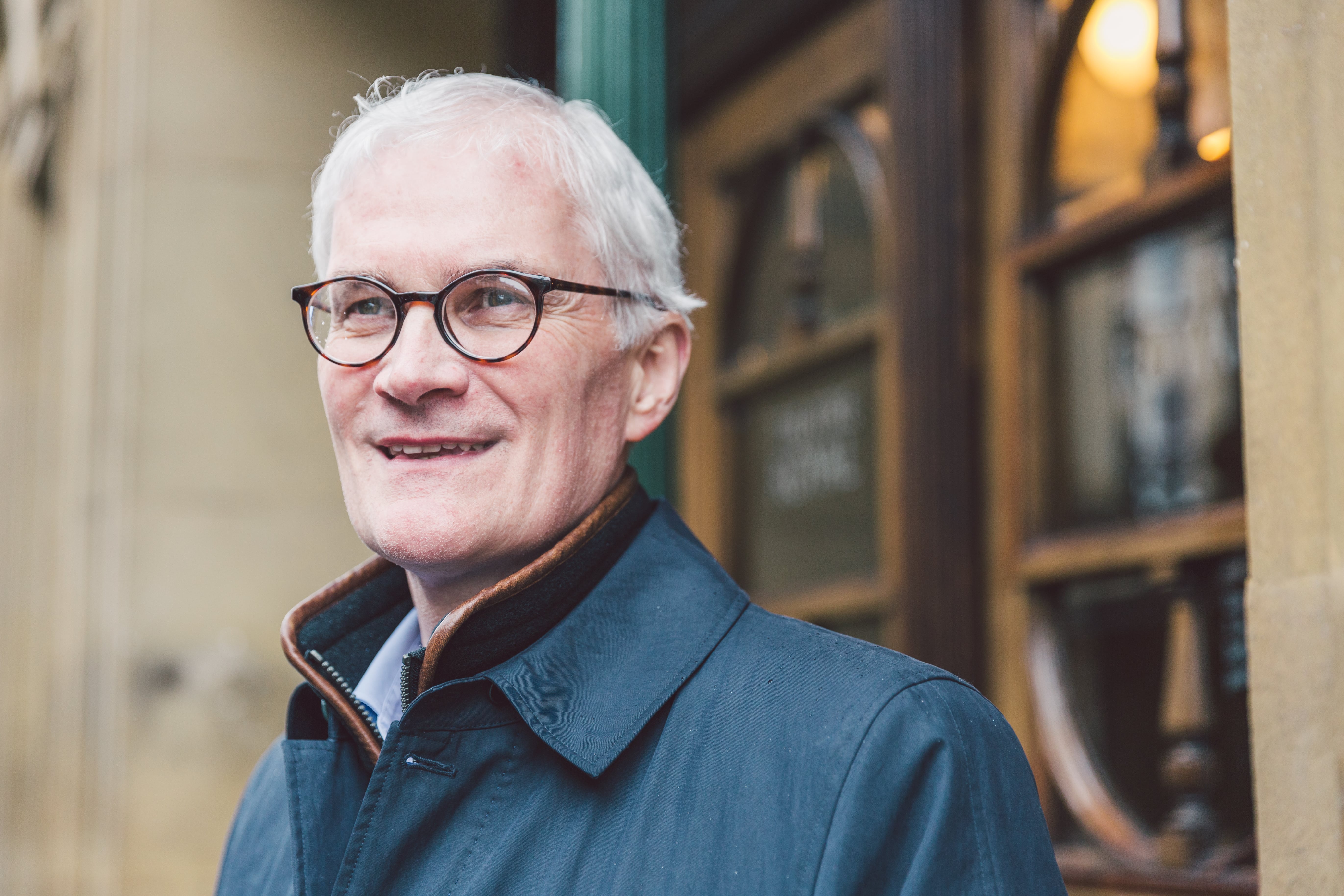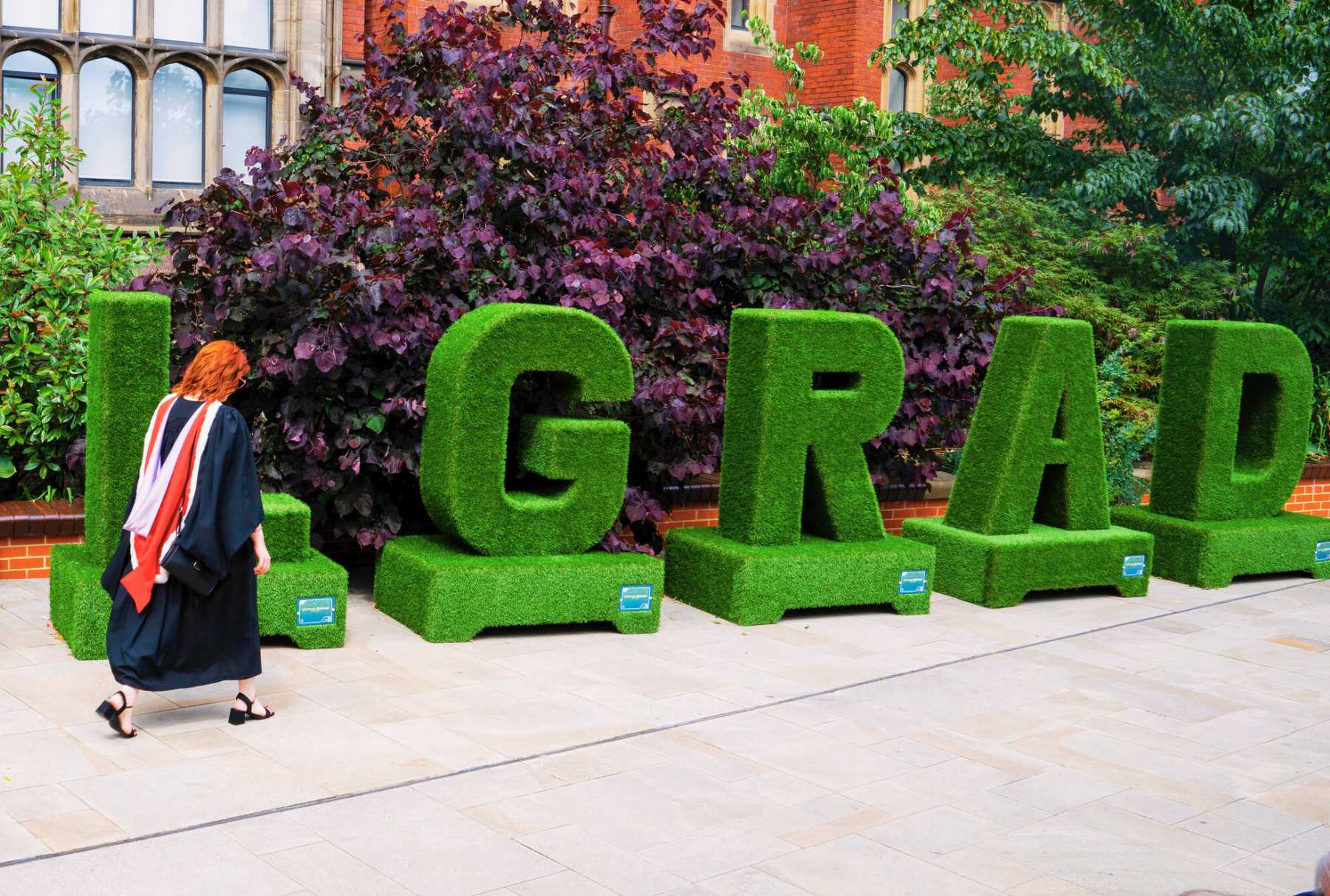Peter Wisniewki
Graduated 1989. Former HR Director at Nike.
"Raise your self-awareness and develop positive people competencies. I have met many people with great qualifications, intellectual agility, and fantastic technical experience who have failed to develop their potential or careers because they did not understand the impact their 'behaviour' had on the people around them."
Career history pre-MBA
Tell us what you were doing when you started the MBA:
I was a Personnel Officer for Philips the Dutch Electronics Corporation.
Why did you choose to study your MBA?
To broaden my business competencies. I was very lucky to be both sponsored and given the time to join the part-time course at the Business School by my employer.

Career history post-MBA
What has your career been like post-MBA?
I have worked in Human resources for nearly 30 years. I have worked for four fantastic, yet completely different organisations: Nike, De La Rue, Fisher Price and Philips. My last role was with Nike where I was the UK HR director for 12 years.
I have also had international experience as a member of Nike’s European leadership team where I had responsibility for leading several people projects and for establishing HR in central and Eastern Europe.
Your current career. Please describe what your current role entails:
My wife and I made a personal decision to step away from our careers a few years back for no other reason than to change our lifestyle and see where life might take us.
During this time, whilst I have declined opportunities to return to Nike, I feel very lucky to have been asked by Nike to act in an advisory capacity. I have also been invited by a number of HR leaders to act as their coach or mentor.
What are you most proud of in your career?
Getting people to understand that a leader's “behaviour” is as important as their technical experience, qualifications or intellect. Likewise, since stepping away from the corporate world I feel flattered to have been asked by a number of people I have worked with during my career to be their mentor or coach.
What’s next?
I feel incredibly lucky to be able to get up every day and be in complete control of my time. The last few years have been taken up with some incredible experiences in New Zealand, Australia, Tasmania, Japan and the Alps.
I still enjoy sharing my business experiences as an advisor, mentor, and speaker.
The MBA also taught me to challenge myself, to always test assumptions, that asking for help is a strength and encouraged me to always adapt.
Your degree
Why did you choose to study at Newcastle University and what did you most like about the city?
I was living in the North East and in the mid-1980s Newcastle University was the only local university who offered an MBA programme.
What did you think of your MBA experience?
Whilst I expected to develop a number of hard skills the MBA also taught me to challenge myself, to always test assumptions, that asking for help is a strength and encouraged me to always adapt.
What do you think makes the Newcastle MBA special?
For me, it was my fellow students. They came from so many different backgrounds, self-employed, public and private sectors, small businesses, multinational corporations.
The variety of experiences and knowledge they brought to the course was practical which complimented the academic elements. Above all else, I just remember having a lot of fun and being challenged.
What lecturers/tutors/staff do you remember well from your time at Newcastle?
There was an Australian called Kevin Russel who lectured in Organizational Behaviour, he brought the subject to life and made me understand the significance of self-awareness in leadership.
Giving back
What advice would you give to someone considering doing an MBA?
I have met a lot of people with great qualifications, intellectual agility, and fantastic technical experience who have failed to develop their potential or careers because they fail to recognise the impact their “behaviors” have on the people around them.
Take the opportunity to raise your self-awareness and develop positive people competencies.
Since graduating, have you kept in touch with classmates?
Sadly not, but at the time I graduated the communications technology we now take for granted was very much in its infancy. Mobile phones the size of a brick and no social media!
For what reasons do you think it is important for alumni to be involved with the Business School?
Alumni can share real-life experiences to complement the academic base which underpins a business course. In particular, you can highlight the mistakes that you have made and the lessons you learned with the wonders of hindsight.
Which alumni activities would you like to be involved in?
I have been involved with the Business School over the past few years including as a member of the International Advisory Board. I have presented to both staff and students and recommended people to help the school. I am happy to help where I can.
